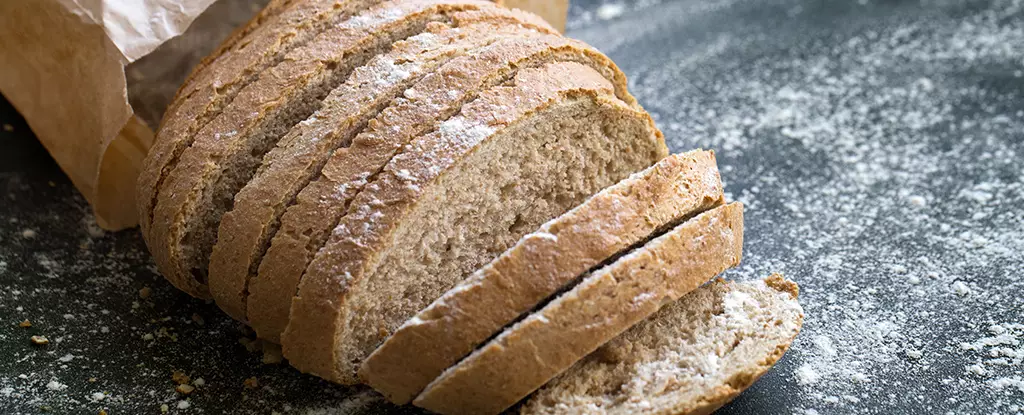The idea of freezing bread to make it healthier has been circulating on social media platforms such as TikTok. The process involves the transformation of starches in bread, particularly those low in fiber or made from finely milled flours like white bread, into resistant starch when cooled. Resistant starches are harder for enzymes in our digestive tract to break down, resulting in a slower release of sugar, which may prevent blood sugar and insulin spikes after consuming bread.
A study on ten healthy individuals examined the impact of freezing white bread and then toasting it. The findings showed that homemade bread, when frozen and thawed, reduced the rise in blood sugar by 31 percent over two hours. Furthermore, toasting fresh bread before consuming it also lowered the glucose response by 25 percent. The combination of freezing, thawing, and toasting homemade bread led to a 39 percent reduction in blood sugar response. However, these effects were not observed with store-bought white bread, indicating potential differences in the formation of resistant starch based on the bread’s ingredients and production methods.
Resistant starch is not exclusive to frozen bread; it can also be found in cooked and chilled starchy foods like potatoes, pasta, and certain types of rice. Basmati rice, for instance, tends to contain more resistant starch than other types of rice. Apart from regulating blood sugar levels, resistant starch provides nutrients to gut bacteria, promoting a healthy gut microbiome. This, in turn, can improve insulin sensitivity, lower cholesterol levels, and decrease the risk of heart disease.
While freezing bread may have short-term benefits in terms of blood sugar regulation and insulin response, its impact on long-term health outcomes such as appetite, weight gain, and disease risks remains uncertain. The effects of frozen bread on metabolism and overall health are likely to be modest over time. It is important to note that freezing bread can reduce food waste and potentially provide some health benefits, albeit small.
While freezing bread may offer some short-term advantages in terms of blood sugar control and insulin response, its long-term effects on health are not yet fully understood. The process of freezing bread can convert gelatinized starches into resistant starch, which may provide benefits such as improved insulin sensitivity and reduced cholesterol levels. However, the extent of these benefits and their long-term implications require further research. Ultimately, freezing bread as a way to enhance its health profile should be viewed as a small dietary modification rather than a significant health intervention.



Leave a Reply